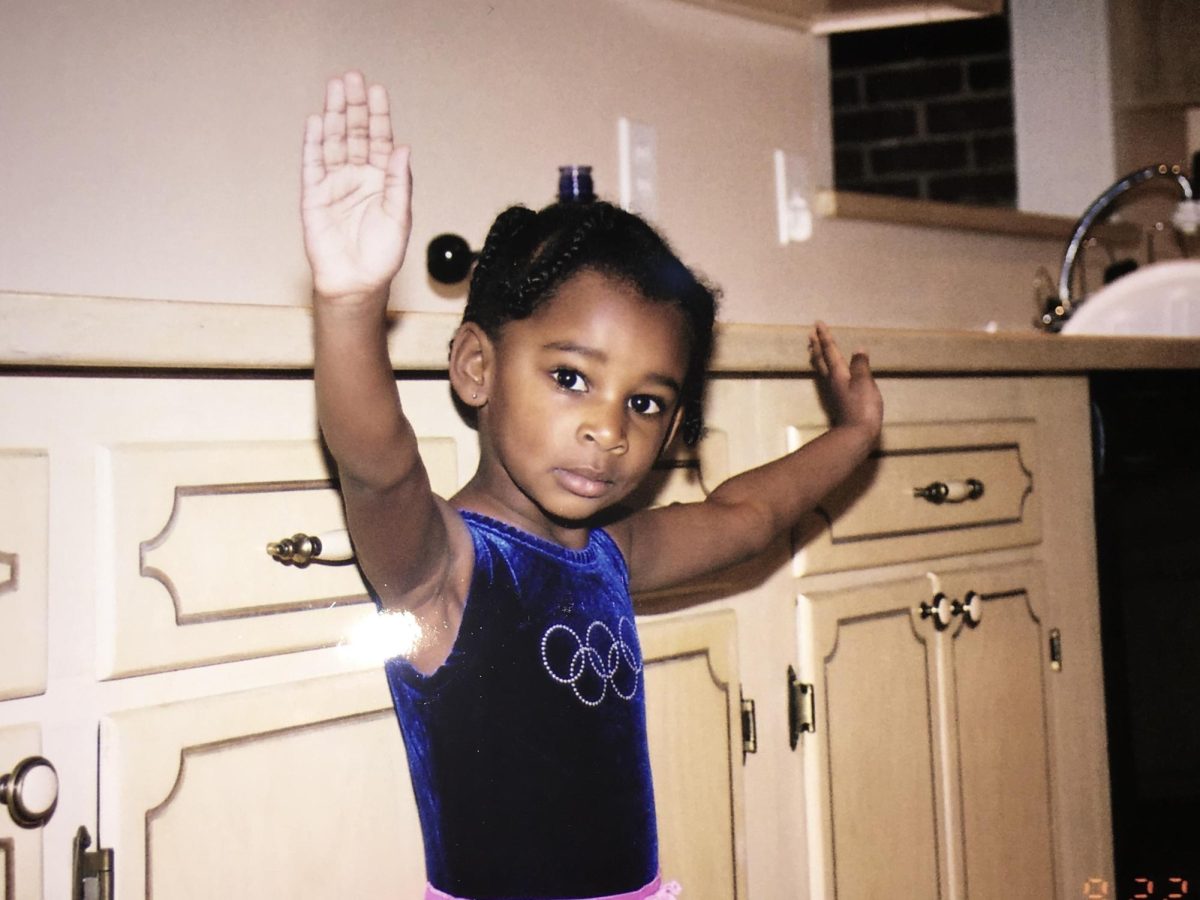Magicians, musicians and cyborgs: Highlights from the 2023 TEDxMSU conference
April 18, 2023
The stage at the Wharton Center was set with the iconic red TED sign on April 2 for the annual TEDxMSU conference, but the event featured more than the guest lectures one might expect.
Right off the bat, the event kicked off with a performance by Daniel Martin, a magician who incorporates inspirational speaking into his act.
Martin performed multiple times throughout the event, appearing to turn an empty can of Pepsi into a full can of orange Fanta and having a Rubik’s Cube sitting on a table identical to one passed around the audience.
Other performers included members of the MSU Black Poet Society and Dixon’s Violin, who used a looping system with his five-string violin to turn himself into a one-man symphony.
During the intermission and following the conclusion of the event, Zeke the Wonder Dog posed for pictures with attendees and caught frisbees thrown by attendees and his handlers, performing occasional tricks, such as launching himself off Sparty’s back.
Each performer was meant to fit the conference’s theme: anomalies.
The performances were sprinkled between nine more traditional TED talks, which were also focused on deviating from the norm and breaking down conventional ways of thinking.
Amanda Allard, a PhD candidate at Michigan State University who spoke at the event, encouraged attendees to be anomalies themselves by showing empathy in order to combat loneliness after a majority of the audience raised their hands when asked if they felt lonely.
“Today you’re going to learn that there is a way to become an anomaly in a world that is mainly lonely,” said Allard. “In order to become that, we have to be willing to develop empathy.”
Allard said she first developed an interest in the topic at the age of nine, when she said her mother was convicted for a crime she didn’t commit.
“I learned two things during this time. One, that nobody was coming to save me out of my loneliness. And two, that there were a lot of people around me who were just as lonely if not lonelier than me,” said Allard.
So, she began practicing her communication skills and developing empathy, she said.
“I didn’t know much when I went to college, but what I did know was that I didn’t want anyone to feel the way I felt when I was nine,” said Allard. “So when there were opportunities to interact with people who tend to be lonely, such as juvenile delinquents, the homeless or even women and men in nursing homes, I jumped at the opportunity to hone my empathy skills.”
Allard laid out the principles underlying these skills, using “anomaly” as an acronym for Aware, Notice, Open, Make, Agree, Listen, Yearn.
Individuals have to be aware of how their experiences shape their perspectives, be open to being vulnerable, truly listen to one another and, perhaps most importantly, they have to really want to make that connection, said Allard.
Eric Waggoner, an adjunct professor at MSU and Lansing Community College who spoke at the event, argued that attendees may already be anomalies due to their relationship with technology.
“Please prove you’re a human,” Waggoner began, referring to CAPTCHA tests as “the tests the computers give to us to prove to them that we’re human.”
“Why do we have to prove we’re not human, anyway? I guess it’s not obvious anymore,” Waggoner continued.
That is because humans have become so reliant on technology that they have effectively evolved into what he calls Meta sapiens, Waggoner argued.
“An android is a robot that looks human. But not all cyborgs look like robots; for instance, you don’t,” said Waggoner. “You look at yourself in the mirror, you don’t see a cyborg. But you do, you just don’t know what a cyborg looks like. It looks like you.”
Audience members who may have been skeptical were asked to consider the cell phones in their pockets to determine if they were cyborgs.
“Can you process mathematical calculations? Check. Can you download and upload and store terabytes of data at gigabit speeds? Check. Can you summon anyone, anywhere, anytime and communicate instantaneously over large distances? Check,” said Waggoner.
“Do you ever get lost? Nope. Is that because you can geolocate yourself and others by communicating with satellites in a geosynchronous orbit with the planet’s atmosphere and triangulate your position with GPS? Check,” Waggoner continued.
“Do you ever share something on Facebook and then unshare it because you thought, ‘Oh, I don’t want anyone to actually know I thought that?’ You uploaded your thoughts without thinking, and only cyborgs do that.”
Waggoner argued that the technology need not be under our skin to make us cyborgs.
“Folks, we’re already cyborgs in function and about perfectly in form, and Apple’s one of the companies that makes our cybernetic devices,” Waggoner said. “It doesn’t really matter that we haven’t figured out how to put these things in our head yet, because once we can, we will — faster than you can say iRobot.”
While some might argue that cell phones are used as an aid rather than as a crutch, Waggoner said many people have already become reliant on them for basic information.
“Your brain isn’t all in your brain anymore. Things you used to keep in your brain you now outsource to third parties. You don’t know the names of the streets in your own town anymore. People used to know that stuff,” said Waggoner. “You don’t remember your memories, and you don’t have to, because Facebook will remember them for you and show them to you.”
Waggoner said, “The question I have for you is, if there’s so much of you in there, then where are you?”
This digital footprint is, Waggoner argued, ultimately an extension of us as individuals.
“What’s the best way to get to know you? If someone really wanted to get to know you and they only had an hour, should they go out to coffee and chat with you for an hour, or would they be better off just drinking coffee and going through your phone?” Waggoner asked.
“It’s the part of you that survives when your body dies,” said Waggoner, comparing the amount of data modern humans will leave behind to the fossil records left by dinosaurs and paintings on cave walls left by early Homo sapiens.
“You know what’s going to be the easiest job in the future? Historian,” said Waggoner. “Indiana Jones is going to be able to recreate your likeness; what you look like, what you sound like. Even what words you would have used in any particular situation. Isn’t that what Google does when they finish your sentences while you’re typing an email? Even what decisions you would’ve made. Isn’t that what Amazon does when they shop for you online?”
Social media use has impacts beyond the amount of data that will outlive us, said Waggoner, including on interpersonal relationships while we are still alive.
While relationships in the past were based on need and limited to a few meaningful people, Waggoner said that having constant access to a never-ending stream of millions of people’s lives, all competing for our attention while we broadcast our own for others’ attention, has made many of those connections shallow and transactional.
Society is “becoming a social plasma where we all have a million connections but none of those bonds are strong. As Meta sapiens, we have the ability to love everybody and be loved by no one,” said Waggoner.
That extends to parasocial relationships with celebrities, Waggoner pointed out.
“Maybe you like Kim Kardashian, but she doesn’t like you. She doesn’t dislike you, either. She doesn’t know you exist,” said Waggoner. “I’m sure she’s a lovely person, but wouldn’t our time and attention be better invested in someone that might actually leave flowers at our grave when we’re gone?”
Still, Waggoner said it’s not too late to be mindful of our technology use and harness it to work for us, rather than the other way around.
Waggoner said, “We’re all undergoing a transformation right now, but as we rise up, if we stick together and remember what makes us who we are in the first place, then resistance isn’t futile. Forget about smashing that like button on YouTube. Don’t worry about that. Instead, put down your phone and check the box that says, ‘I am not a robot.’ And the next time the computer asks you to prove that you’re human, do it.”
One possible example of that is what Waggoner contends will signal the completion of our evolution into Meta sapiens.
“The new iPhones, if you’re in a car accident, they can feel the impact, they can decide something went wrong, and they can act by summoning emergency services for you. It’s not going to be long before a Meta sapien is in a car accident and their biological mind is unconscious but their cybernetic mind is awake and realizes something was wrong and calls 911,” said Waggoner. “When that Meta sapien has kids, you will see evolution right in front of your very eyes: a Meta sapien surviving and reproducing in a situation where a Homo sapien would have perished.”































